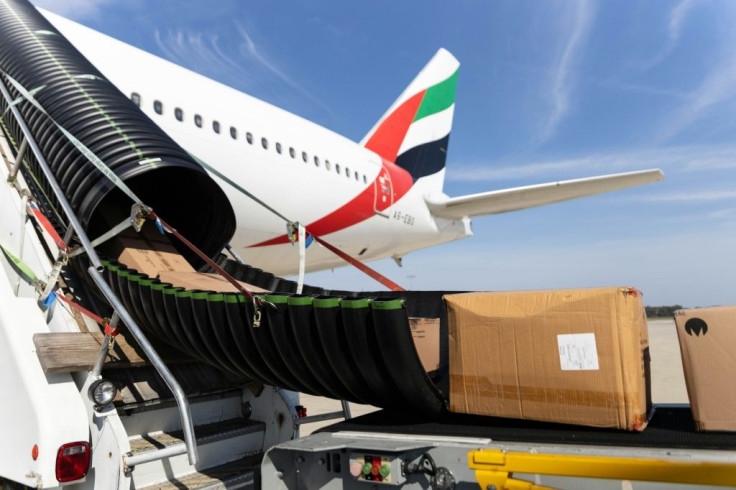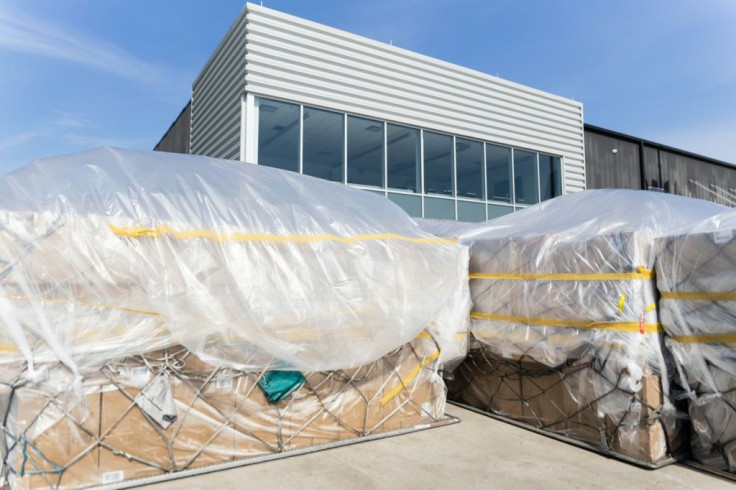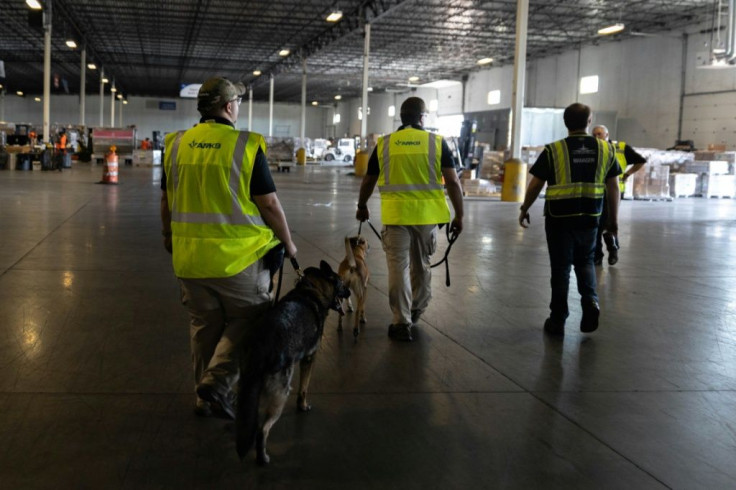Cargo Deluge Tests Ohio Airport Amid US Shipping Snarls
After months of managing increased demand, officials at Rickenbacker International Airport in the United States realized this spring that they were too strained to accept all new business.
"There are actually flights being turned away only because we want to make sure we can take care of customers we've already committed to," Charles Goodwin, director of airport operations at the Columbus Regional Airport Authority, told AFP.
Rickenbacker's dilemma is a sign of why economists increasingly worry that overloaded supply chains will slow or derail the global economic recovery from the Covid-19 downturn.

As retailers and manufacturers scramble to navigate around massive delays at ports, some have turned to Rickenbacker, a cargo-focused airport whose location in Columbus, Ohio offers quick access to major highways, enabling truckers to reach nearly half the population of the United States and a third of Canada's within a day.
But Ohio is not immune to the supply chain and labor challenges that have raised questions about merchandise availability for the upcoming holiday season.
"It's not all about volume," said Goodwin, who hopes strong customer service will position the airport for even greater growth in the post-pandemic era. A key priority with air freight is speed and reliability.
"Freight has been left for weeks" at other airports, Goodwin said. "We're trying not to be that airport."

Originally built during World War II as a military base, Rickenbacker was handed to local authorities in the 1980s.
The facility currently houses a small passenger operation run by domestic-focused Allegiant Air, but is among a small group of US airports known mainly for cargo service.

Columbus has long been a center for apparel as the home to the businesses of Les Wexner, the mogul behind L Brands, whose labels once included The Limited, Victoria's Secret and Abercrombie & Fitch.
Wexner's businesses built up US distribution channels beyond the Midwest and was a key early source of international cargo shipments to Rickenbacker from manufacturing centers in Asia.
The airport's inflow of cargo now also comprises computer electronics, manufacturing parts and personal protective equipment. Even before the pandemic, volumes from international shipments began rising rapidly over the last decade with the growth of e-commerce.
That has spurred a construction boom in the two-mile proximity of the airport, where companies like Amazon, Gap and Lululemon have vast warehouses and undeveloped land sells at a fast clip.

Huge growth in logistics tied to e-commerce has contributed to making Columbus the fastest-growing city in the Midwest, said Ned Hill, a professor of economic development at Ohio State University.
Columbus "has been able to grow a lot of low-skilled jobs" thanks to its logistics industry, Hill said, adding that the city has a "portfolio economy."
Freight deliveries have taken off in a big way over the last year as shipping by water has gotten more costly and time-consuming. Carriers like Cathay Pacific and Emirates have converted large passenger planes to cargo, in some cases removing seats.
The shift has brought some unlikely loads to Rickenbacker, such as three Boeing 747s full of Halloween costumes, said Bryan Schreiber, manager of air cargo business development.
Such items would normally go on ships, Schreiber said.
Rickenbacker has increased the monthly international trips from between 80 and 90 to about 160 now.
To manage the current deluge, Rickenbacker officials keep real-time tabs on about 10 to 15 private and public organizations throughout the airport ecosystem, including US customs authorities and key warehouses that need to be able to accept fresh cargoes.
The local warehouse vacancy rate is about three percent and rapidly turns over, said Mike Hurd, senior director at Cushman & Wakefield in Columbus.
The stuffed nature of warehouses, along with the finite source of labor, are key reasons Rickenbacker does not expect to further increase shipping levels in 2021.
A quick drive around the neighborhood near the airport yields a sea of "help wanted" signs for truckers, forklift drivers and warehouse workers, in some case offering signing bonuses of $1,000. Rickenbacker has also lifted base pay.
Schreiber figures Rickenbacker and the surrounding area has enough land to potentially quadruple flights over the next decade, contrasting the terrain with jammed airports in Chicago and New York.
"They'll be expanding this airport long after I'm retired," he said.
© Copyright AFP 2024. All rights reserved.











